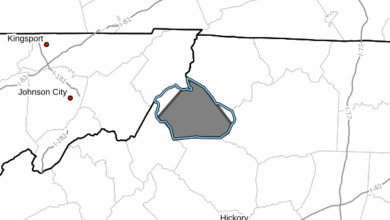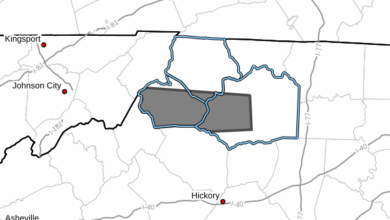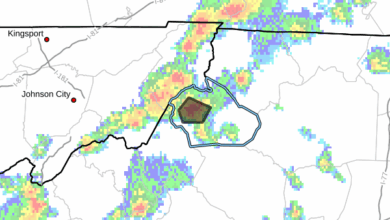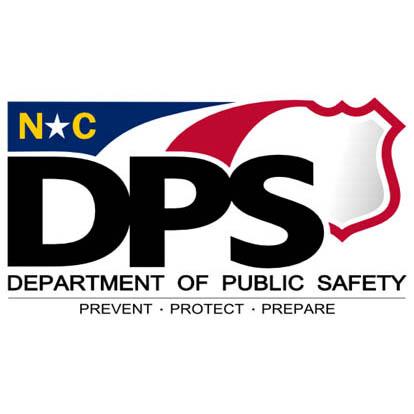
Last Updated on October 24, 2023 3:06 pm
BOONE, N.C. — New renovations, services and staff positions at Appalachian State University's Campus Dining facilities are designed to enhance the culinary experience, build community and improve food safety and access.
The upgrades include recent renovations at Rivers Street Cafe in Roess Dining Hall and Park Place at the Pond in Trivette Hall, both located on App State's Boone campus. The $3.8 million renovation project began in May and was completed in August, with funding coming from dining receipts.
“We wanted to improve the customer experience but also offer new ways for diners to be engaged with our culinary team,” said Elizabeth Riede, executive director of campus dining. “I think increasingly, in the food experience in general, customers are looking for that connection.”
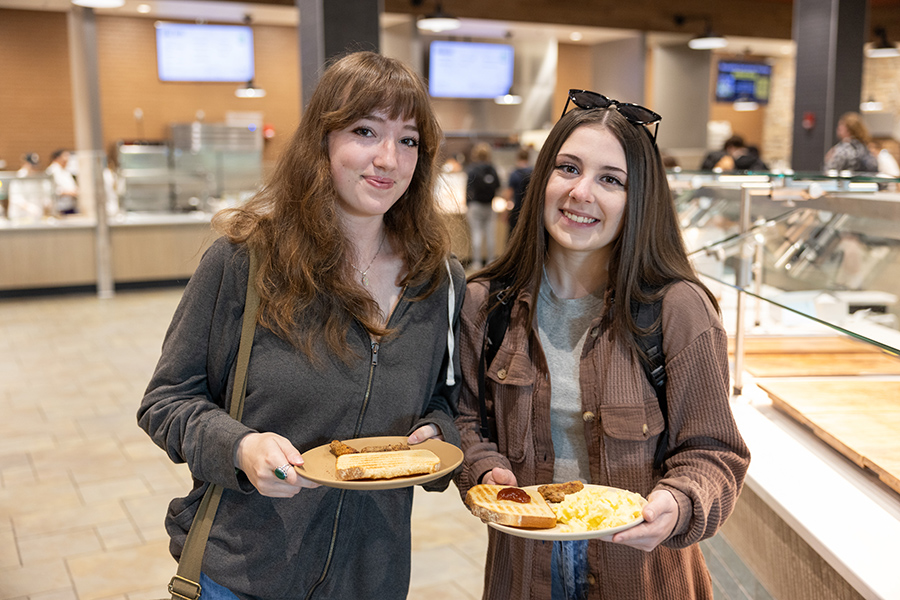
Rivers Street has a more open concept now, with a redesigned salad bar and overall layout, which will eventually include an “action station” where chefs cook meals in front of customers. The most noticeable change is that the drink station that ran the length of the cafe has been removed, with new drink stations conveniently located adjacent to seating areas.
“It’s really beautiful, open and airy, and lets so much more light in,” said Riede. “You can actually feel the brightness now when you walk through that space.”
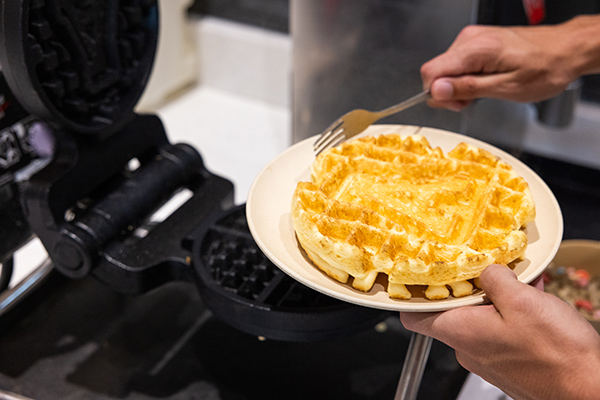
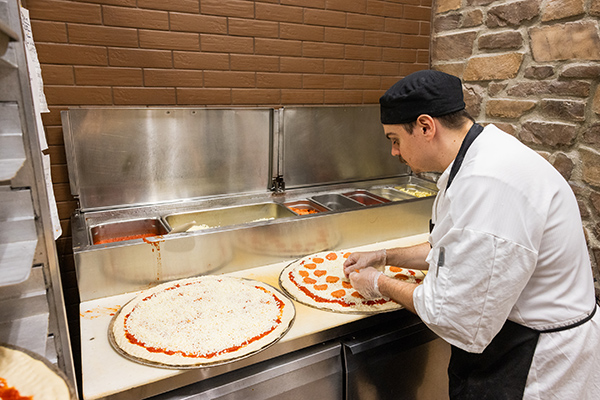
Stan Chamberlain, Campus Dining’s director of residential dining, said, “The renovations allow easier access and movement throughout the space. That’s making a huge difference.”
At Park Place, the former foyer space was converted to additional seating to accommodate increased usage on the west side of the Boone campus.
As for the menus, Riede said, “I think everyone will find it to be an incredibly different dining experience in both spaces this semester.”
Park Place has launched several new food stations that rotate in theme, and Rivers Street has new equipment that helps its menus better adapt to the changing of seasons.
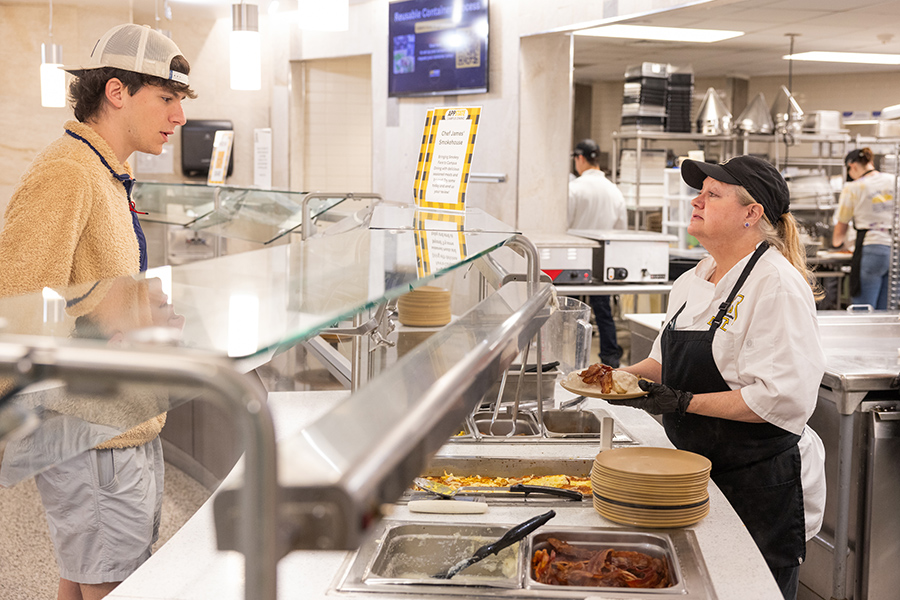
An all-inclusive dining experience
All Access dining — formerly known as All You Care to Eat — is available at both Rivers Street and Park Place and allows diners to have buffet-style access to a rotating menu, as well as comfort foods such as pizza, burgers and chicken tenders.
“The biggest positive about All Access is that it provides food security,” said Chamberlain. “When I was in school here, it was the declining balance plan, and by November, I was out of money and trying to figure out how I was going to eat. Now, students don’t have to worry about counting meals. That’s going to relieve a lot of stress.”
Each dining hall has introduced Nutrislice, an all-encompassing digital menu transparency company that updates menus in real time to help diners navigate special diets or allergy restrictions. The program uses a series of symbols that allows guests to identify which of the top nine allergens are present in each menu item, and also designates items as vegan, halal and made with local or gluten-free ingredients.
Nutrislice includes an iPad at the entrance of All Access dining spaces, through which students can view the menu and filter out their dietary restrictions. Students can also download the Nutrislice phone app to view and filter menus in advance.
“Nutrislice makes it easy to find things, and the digital menus are aesthetically pleasing and easy to read,” said Riede. “For students who are navigating with special diets or other restrictions and allergies, it’s literally a lifesaver for them.”
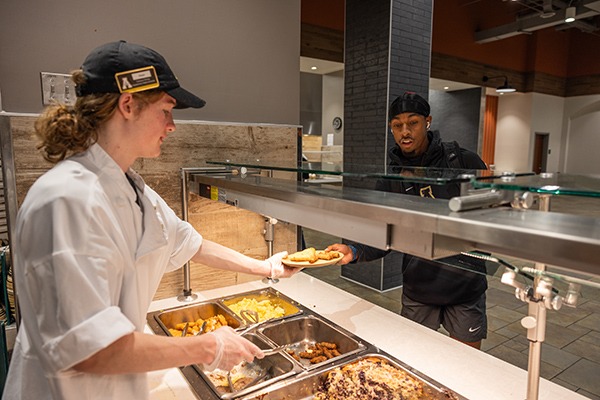
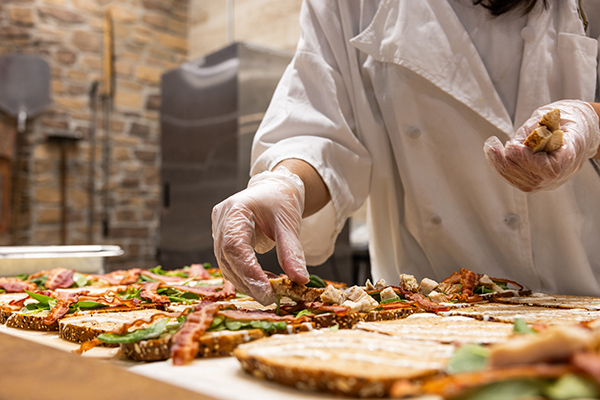
Campus Dining also has staff members trained and designated as “Allergy Resources” available during all mealtimes, who can be identified by a purple lanyard, apron or badge. For guests who need to avoid gluten or dairy, there is a “worry-free station” at each dining hall with a separate fridge that is stocked with dairy-free food and gluten-free items. With the exception of the App Bakery, located in a separate area of Roess Dining Hall, Campus Dining does not use tree nuts or peanuts in any of its kitchens.
Further underscoring the commitment of Campus Dining to food safety and choice is the addition of a new director of nutrition position.
“We take utmost caution when working with students, faculty and staff with food allergies, since food allergies can be life threatening,” said Campus Dining Director of Nutrition Farrah Reidt, who joined the Campus Dining staff this semester. “With my position, I want to make dining on campus feel safe for everyone, regardless of any dining restrictions.”
Reidt said she plans to make a lot of positive changes to help Mountaineers navigate a healthy diet. She offers nutrition consultations to students, faculty and staff that include a review of dining locations, menus and tours.
“Good nutrition is essential for the human body to function properly, especially in college,” said Reidt. “Research has shown that eating healthy meals is linked to better memory and alertness and faster information processing. Nutrition-rich diets also play a huge role in things like immune function, mental health, sleeping habits and mood — all of which are imperative for college students to thrive inside and outside the classroom.”
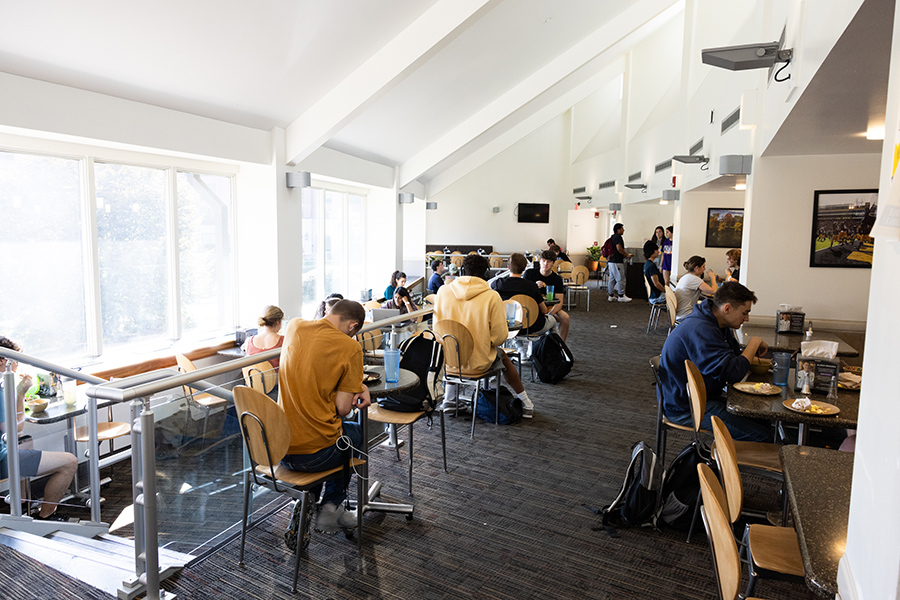
A sustainable dining experience
Beginning this semester, Campus Dining now offers reusable to-go containers. The program, available as a free mobile app, allows students to check out reusable trays and bowls with a QR code and return them within a few days.
“We wanted to meet two thresholds — we wanted reusable containers to be free for students, and we wanted to be able to track the containers to improve our sustainability contributions,” said Riede. “This can be a game changer in a lot of ways.”
According to App State’s Office of Sustainability, the containers accomplished the following achievements in just the first two weeks of the semester:
- 326 pounds of waste was avoided.
- 4,038 single-use containers were saved from going to the landfill.
- 2,503 gallons of water was saved.
To further support App State’s Zero Waste initiative, staff in the Rivers Street Cafe disposal area sort through leftover food and other waste so that these items are properly distributed to trash, compost or recycle bins. Compost from leftover food is distributed to App State’s Landscaping Services for flower beds and tree plantings, and to the campus gardens and the Sustainable Development Farm and Gardens to amend the soil for vegetable planting.







